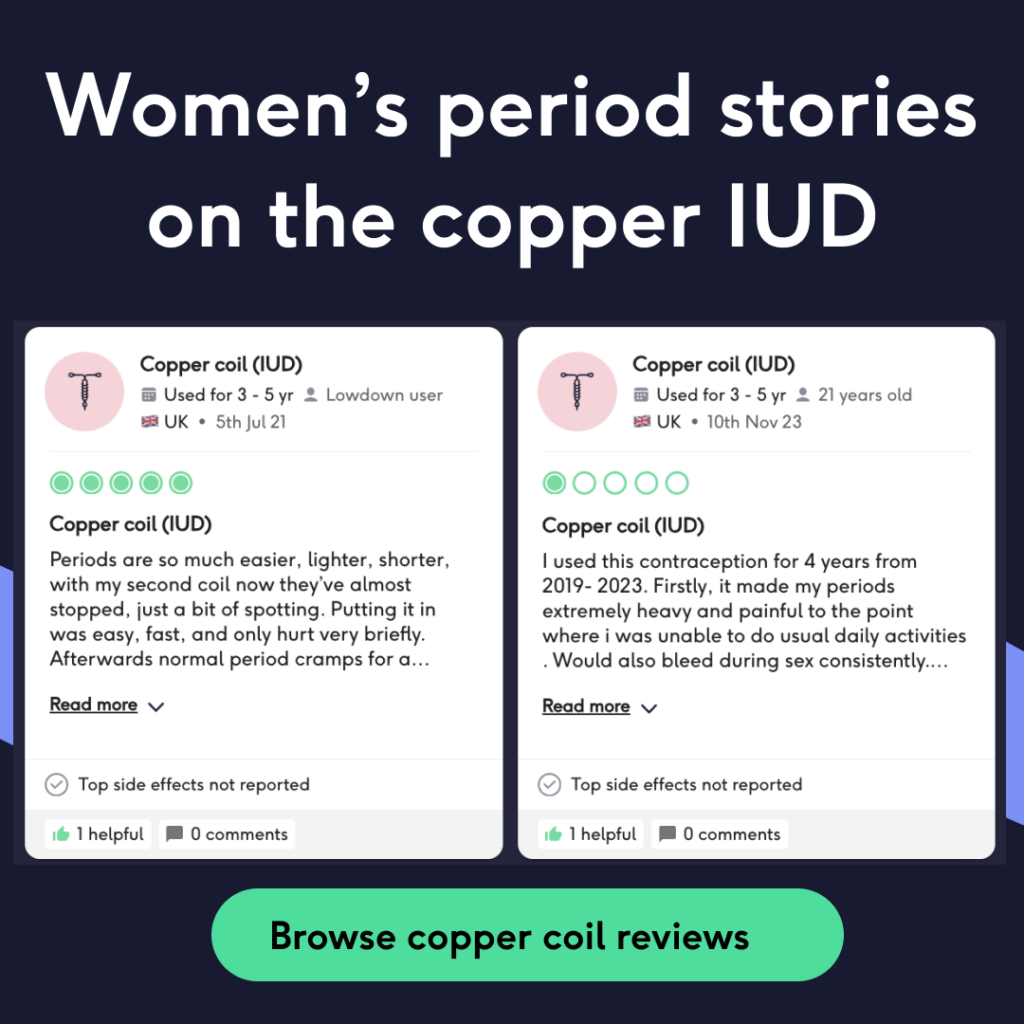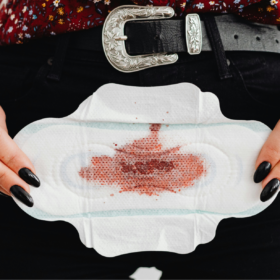
Missed a period? Here’s 8 possible reasons why your period is late
What's the lowdown?
If you’ve missed a period – don’t panic. It doesn’t necessarily mean that you’re pregnant
There are a number of causes for missing or having a late period, including hormonal causes, excessive exercise, illness and weight gain or loss
If you have the copper coil (IUD) and you have missed your period, it could be down to another cause
You can do a pregnancy test to be sure
Periods… most of us hate them, but when they’re late we’re consumed with worry about why they’re not there. Whilst pregnancy is usually front of mind when a period is late, there can be a number of reasons why you may have a missed period that aren’t because you’re pregnant. We’ve outlined 8 possible causes for why your period may be late despite a negative pregnancy test.Missing a period or having an irregular cycle can be confusing, but it doesn’t have to be! If you‘d like to chat to one of The Lowdown’s doctors about periods, the copper IUD or what the best contraception might be for you, you can make an appointment here.
Possible reasons for a late or missed period
Hormonal contraception
The type of contraception you are using plays a factor in how your menstrual cycle operates. Birth control methods that contain hormones, in particular progestogen only, are more likely to cause irregular and late or infrequent periods. The contraceptives most likely to cause a late period are the mini pill, contraceptive implant, contraceptive injection and IUS (the hormonal coil). If you’re late or miss a period on any of these methods it’s likely it could be your contraception, but do a pregnancy test if you’re concerned.It’s also very common for hormonal coils like the Mirena coil and Kyleena coil to stop periods altogether (find out more about the types of hormonal coil). Around half of The Lowdown users say the hormonal coil stopped their period with others reporting lighter or irregular bleeds. This is more likely after a year of use. However if your periods suddenly change, check for your coil threads and do a pregnancy test.Some users also report breast tenderness, nausea and period like cramping as side effects from progestogen only contraception like the Mirena or Kyleena coil. Nausea and breast tenderness are also common pregnancy symptoms so if you experience these but have a negative test, it could be your contraception. If in doubt, see your GP.Check out our contraceptive reviews to see which methods of birth control our users have experienced late periods whilst using.Period pants are a great addition to have in your wardrobe for those moments when your period starts when you least expect it to. Modibodi and WUKA period pants are great examples of these, especially for heavy periods.
What about a missed period on the copper coil (IUD)?
There are lots of reasons why you might have a late or missed period with the copper coil (IUD). The copper coil is hormone free so should not affect your natural cycle (although in fact it can actually make periods more heavy or painful). So in this case, other things may affect your natural cycle include stress, illness, excessive exercise, or weight change. Sometimes we never know what caused the disruption.If you have an IUD and your period is late, you can do a pregnancy test if you’re worried. In some rare cases women with copper coils can have an ectopic pregnancy (pregnancy in the fallopian tubes). If you have a positive pregnancy test with a coil in, then you need to seek urgent medical attention.
Breastfeeding
If you are breastfeeding your newborn then your period may not return for many months. This happens as a result of prolactin, the hormone that causes you to make breast milk, which is the same one that stops you from ovulating and having your period. Find out more about breastfeeding as a form of contraception.
Perimenopause
Perimenopause¹ is the term used for the time when a woman’s body makes the natural transition to menopause (when periods stop altogether), from the beginning of menopausal symptoms to after menopause. The menopause is a natural part of ageing, experienced by all women, and normally happens between the ages of 45 and 55. There can be exceptions to this and before the age of 45 is considered early menopause. When menopause occurs under the age of 40, this is known as premature menopause.A woman’s level of oestrogen will rise and fall during this time and she may begin to have menstrual cycles where the body doesn’t release an egg. As the menopause approaches it is not uncommon to miss the occasional period and although pregnancy should be considered, it is more likely that this represents the transition into the menopause. It is normal sometimes not to get a period for two or three months, and thereafter have a heavy period, which can be difficult to manage.
PCOS
Polycystic Ovary Syndrome (PCOS) is a common condition that affects how a women’s ovaries work, affecting about 1 in every 10 women in the UK.The 3 main features of PCOS² are:
- Irregular periods or no periods at all – which means your ovaries do not regularly release eggs (ovulation)
- Excess androgen – high levels of “male” hormones in your body, which may cause physical signs such as excess facial or body hair
- Polycystic ovaries – your ovaries become enlarged and contain many fluid-filled sacs (follicles) that surround the eggs
Other signs and symptoms include weight gain, thinning hair and hair loss from the head, oily skin or acne and difficulty getting pregnant as a result of infrequent ovulation. Whilst the exact cause of PCOS is unknown it often runs in families and is related to abnormal hormone levels, including high levels of insulin.Myoovi is a great form of menstrual care for people who have PCOS. It works via transcutaneous electrical nerve stimulation (TENS) acting as a form of pain relief.
Weight gain or weight loss
Whilst there is no defined amount of weight that a woman can put on or lose for it to affect her period, the more significant the gain or loss in a shorter period of time the more likely her period may be late. Excessive weight loss is more likely to cause a late period than weight gain.
Stress
If getting your period wasn’t stressful enough, high levels of stress can actually delay your menstrual cycle. Excessive stress can affect your hormones which in turn can affect your periods. If a woman experiences severe stress they may find their periods are shorter, lighter or even non-existent. Your GP can help you explore methods that will help you manage your stress.
Excessive exercise
When you miss your period due to excessive exercise this is known as exercise-induced amenorrhea. This can be common in female athletes. Your menstrual cycle will usually return to normal once you resume a lighter exercise routine, but there can be significant risks with long term amenorrhea, including infertility and changes in bone density.
COVID-19?
Many women have reported coronavirus potentially messing with their menstrual cycles. With the pandemic qualifying as a major form of stress, it’s not surprising that women are reporting irregular menstrual cycles and late periods. We spoke to reproductive immunologist Dr Vicki Male and our own Dr Fran has written about COVID-19’s impact on fertility and periods too
What to do when your period is late
If your period is being unpredictable and cycles are changing regularly then it is worth talking to your health care professional about hormonal issues like polycystic ovary syndrome. If your periods stop completely for more than a few months, and you are not pregnant or on hormonal contraception, then speak to your GP.There are other medical causes of missed or irregular periods we’ve not mentioned here. If your GP thinks that your lack of periods may be due to a medical cause they will investigate this, and may refer you to a specialist clinic.
Learn more about periods
NHS UK. PCOS. 2019.
Our medical review process
This article has been medically reviewed for factual and up to date information by a Lowdown doctor.







